The Pleasure Garden (1925)
Directed by: Alfred Hitchcock
Written by: Eliot Stannard
Starring: Carmelita Geraghty, John Stuart, Miles Mander, Virginia Valli
AVAILABLE ON DVD
RUNNING TIME: various, ranging from 60 mins to 75 mins, recent restored version 90 mins
THE HITCHCOCK CAMEO: none
REVIEWED BY: Dr Lenera, Official HCF Critic
Jill arrives in London with a letter of introduction to Mr Hamilton, proprietor of the Pleasure Garden Theatre. The letter and all her money are stolen from her handbag as she waits to see him. Patsy, a chorus girl at the Pleasure Garden, sees her difficulty and offers to take her to her own lodgings and to try to get her a job. The next morning, Jill is successful in getting a part in the show. Her fiancée Hugh arrives with a colleague called Levet and he and Patsy become very close, though Jill is becoming a major success on the stage and is ignoring her fiancée in favour of a number of rich men including a Prince Ivan……
One of the decisions anyone has to make when embarking on a journey through Alfred Hitchcock’s films is how much time to spend on his very early films. The ‘Master Of Suspense ‘ only became that after some toiling away on projects that little interested him, though of course there are pictures like The Lodger which are already ‘Hitchcock films’ through and through. At one point I was just going to what were basically ‘foot notes’ to films like Juno And The Peacock and The Skin Game, but if I’m going to do something, I’m going to do it properly, and so you will have to suffer a few full reviews of films that you may not be too interested in before you start getting to stuff like The 39 Steps and Rebecca. Now of course much has been written about Hitchcock over the years by writers far better than I, but I hope you’ll enjoy my journey through the decades examining the work of a man who was one of the filmmakers who really got me ‘into’ old films and whose work I fell in love with immediately. Of course he had his ‘failures’ and if you’ve been a regular reader of my reviews on this here website you’ll know to expect the odd unusual or even controversial opinion!
Now I should point out that if you’ve only seen a few Hitchcock pictures and are not too experienced in his work and/or in films of a very old vintage, the really early movies are not really the place to go to for quite a while. I myself have been a fan of Hitchcock for about 25 years but have not got round to seeing all of his films until now, with all of his work from the 1920’s remaining unseen by yours truly except for The Lodger and Blackmail. I’m not sure I will enjoy all that I see, but judging by The Pleasure Garden, which I have just viewed for the very first time, there will certainly be interesting elements. And if these films don’t seem like your ‘bag’, just stick around and be patient, because as I get to the 30’s, I will be talking about films which in some cases are ‘must sees’ by anyone seriously interested in cinema.
The Pleasure Garden, as you will no doubt have noticed from the synopsis of the first third or so at the start of this somewhat convoluted review, is certainly not an example of the type of film with which Hitchcock made his name, and nor is it an especially good film full stop. Orson Welles was lucky to start with Citizen Kane, but then again maybe he was actually unlucky because the picture he started off with was so good he had trouble topping it [and some say he never did!]. Hitchcock, who remains one of the most popular of ‘old-time’ filmmakers, began his lengthy cinematic career with a clumsily plotted melodrama which should never be confused with great classics of the silent era such as Metropolis, The General or Pandora’s Box. It’s not an unenjoyable watch though, with its story moving at a decent pace and far less intertitles [text between scenes or text telling us what characters are saying] than usual for a silent film. Is it recognisable as a film coming from Hitchcock? Probably not if you’re a casual viewer, but I certainly noticed some intriguing touches in it.
Hitchcock owes the job of directing his first film, and thereby his whole career, to a man named Michael Balcon, a producer who kept on promoting the “plump young technician” [in his own words] until in 1925 he gave him the chance of directing The Pleasure Garden, which was an Anglo/German production based on a novel by Mrs Oliver Sandys. It was filmed mostly on location in Germany and Italy, where the film stock was confiscated by Italian customs officials because the camera wasn’t declared in one of several incidents which hampered shooting, another one being a whole load of expenses going missing. The film was not actually much liked by the distributors, who took exception to its European-influenced ‘arty’ touches and a violent shooting near the end. It was only released after the success of Hitchcock’s next picture The Lodger. Since then it has existed in a bewildering number of versions often containing alternate footage and some even missing the final scene, a common thing during the silent era where films were routinely hacked about, but recently the BFI fully restored the film to its original 90 mins from five different edits.
The first ever shot in a Hitchcock movie shows showgirls rushing down some spiral stairs, and I suppose one might immediately think of Vertigo, but I was more intrigued by what follows, an old man in the audience watching the show ogling the girls, the camera itself seeming to ogle their legs. The first scene, and already we have voyeurism and the fetish for women’s legs! After this things are not too interesting for a while in what is a basic backstage romantic drama with the two main female characters split into ‘bad girl’ and ‘good girl’, and for a while it seems this is one of those moralistic stories which warn women of the supposed ‘dangers’ of having too much fun, but Patsy, the one who seems like she is the ‘bad girl’, is more of a flirt than an actual promiscuous person and her search for a rich Mr Right eventually pays off. Romantic complications are the main order of the say and it seems that the director wasn’t too interested in some of the story as he focuses on things like a pet dog who licks Jill’s feet and even plays with one of her stockings, and throws in some shots from unusual angles. There’s also an odd bit where we see the two girls sharing a bed, one wearing a dressing gown, one wearing pyjamas, looking for all the world like a lesbian couple, which seems like Hitchcock’s doing all over.
Generally though this is fairly pedestrian stuff and is not helped by the story jumping forward a lot [though that might in part be because the version currently available on DVD is only 60 mins long], but about half way through it becomes a somewhat more interesting and even exotic affair set in Italy and Africa. We see elements of an abusive relationship, with the man pulling the woman’s hair roughly, then a murder where the woman is wading into the sea to drown herself and the man just goes in after her to do the job properly. Hitchcock’s first murder is a forced drowning with a nice underwater shot [remember, things like this weren’t done back then] of a head being held in the water. A ghostly vision of the dead girl gets closer and closer to the screen until you can almost touch it, and the controversial shooting has the killer in the foreground and the victim in the same shot but in the background, blood on his chest and taking quite a few seconds to die, a scene not as vicious as all that but filmed for maximum impact. All this is fun but the film seems have totally forgotten Patsy by now and she doesn’t even appear in the final reel!
The two lead actresses Virginia Valli [a major coup for the film as she was a major American star of the film] and Carmelita Geraghty act with more subtlety than one might expect, but look so similar that I sometimes had trouble differentiating one from the other and it made the film a little hard to follow. This wasn’t helped by the low number of intertitles; Hitchcock obviously made a valiant stab at ‘showing not telling’, but it doesn’t always come off. In no way a major picture, and certainly far down the list of Hitchcock films, The Pleasure Garden is a not unpleasant way to pass the time. Don’t expect what you think of as a ‘Hitchcock film’ or set your expectations very high, and you might find it fitfully enjoyable, though as I said – don’t make it your first Hitchcock, otherwise you may not be too bothered about watching another!

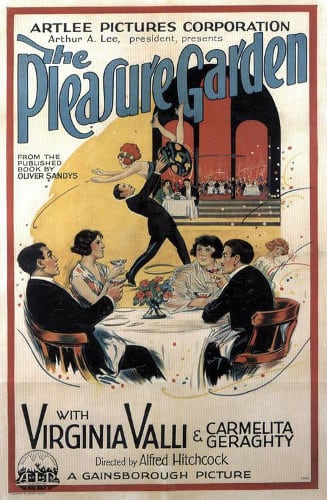

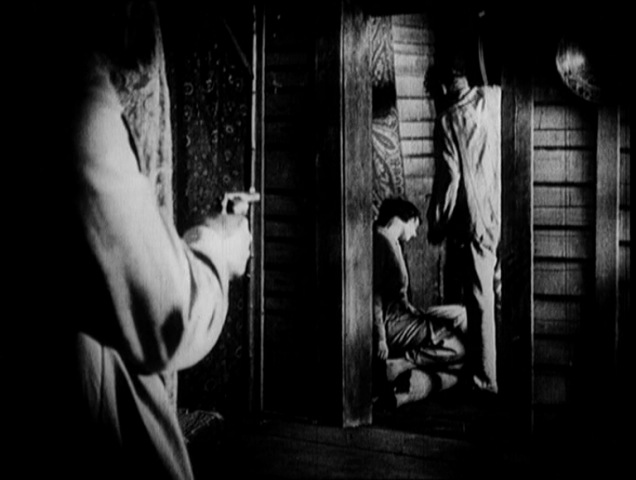



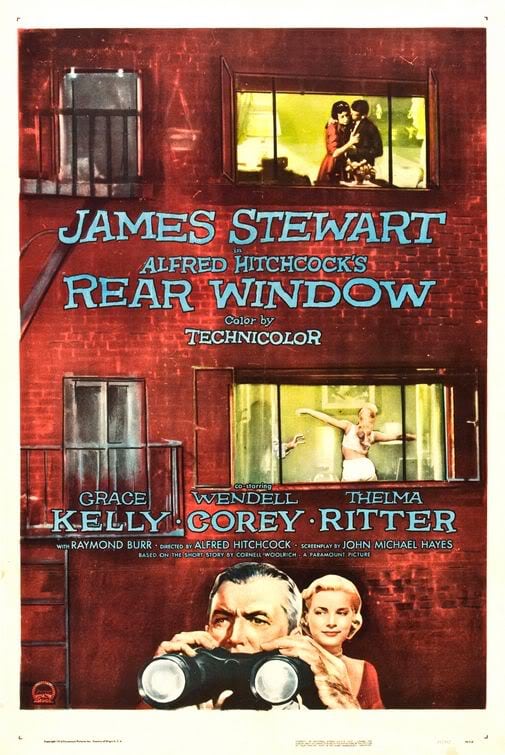
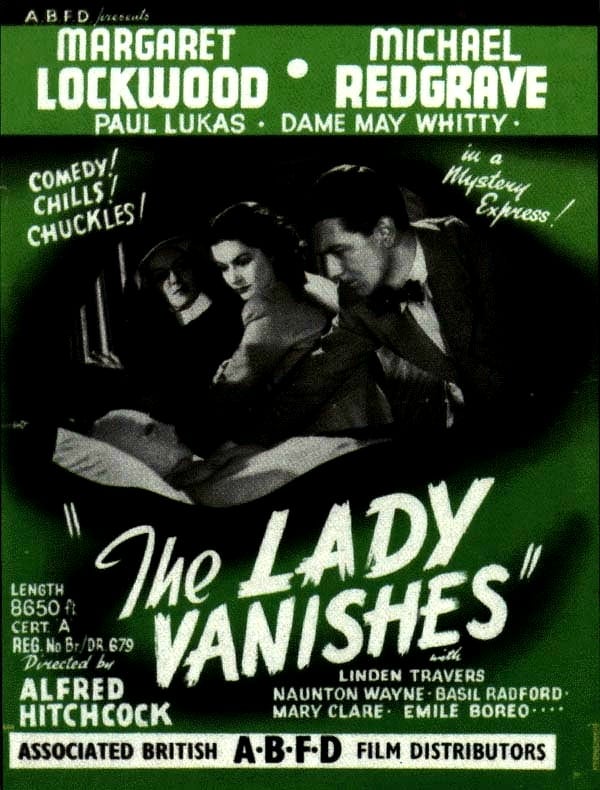
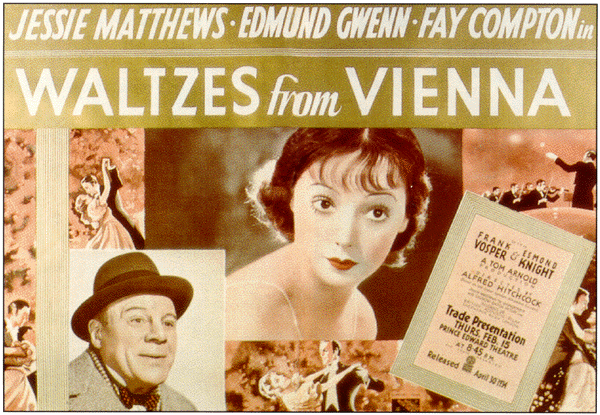
Be the first to comment